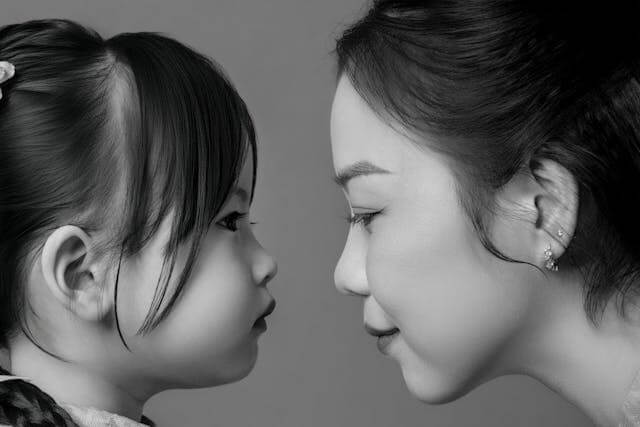How do You Separate Personal Grief from Your Parenting Role and Protect Your Children from Emotional Crossfire?
When my relationship ended, it felt like my whole world cracked open. Not just the marriage, but the future I thought I was walking into. The dreams I held. The family picture I believed would stay intact. And while I was grieving, life didn’t stop. I still had to be Mom. I still had to show up for my kids when all I wanted was to crawl under the doona and disappear.
If you’re going through separation or divorce, you know this feeling. It’s grief and exhaustion and anger all rolled into one. And then, on top of that, you’re supposed to be calm and stable and patient with your kids. It feels impossible sometimes. But here’s what I’ve learned: you can grieve and parent at the same time. You just can’t hand your grief over to your kids. That’s where the line has to be.
When Grief Spills Into Parenting
The hardest part about separation is how it invades every corner of your life. The house feels empty. The bed is cold. The routines you relied on are suddenly gone. You’re walking around half-functioning, and meanwhile, your kids are asking for snacks, arguing over Lego, and needing you to keep being their safe place.
It’s so easy for grief to leak into those moments. A sigh at the dinner table. A tear that slips out during story time. A comment like “Daddy is making this so hard.” You think it’s small, but kids pick up everything. They hear. They feel. And the moment they start carrying the weight of your pain, that’s when the crossfire begins.
Children don’t have the tools to hold adult grief. They love both parents. They don’t want to choose sides. But when they hear your pain tied up in the story of the other parent, they start feeling torn. That’s not fair to them.
Kids Deserve Freedom
Your kids didn’t choose this separation. They didn’t ask for new houses, new routines, or the tension between Mum and Dad. What they deserve is freedom. Freedom to still be kids. Freedom to laugh, to play, to run into both your arms without guilt.
And your job, even in the middle of your pain, is to protect that freedom. That doesn’t mean pretending you’re not hurting. It means learning how to hold your grief without putting it on their shoulders.
I’ll be honest. I’ve failed at this at times. I’ve cried in front of my son more than I wanted. I’ve said things I regretted the moment the words left my mouth. But what I’ve also learned is that protecting your kids isn’t about being perfect. It’s about noticing when you’ve slipped and repairing it. Saying “I shouldn’t have said that. That wasn’t fair to you.” Kids don’t need flawless parents. They need parents who take responsibility.
How I Started Separating Grief From Parenting
- I named my feelings without handing them over. My son has seen me sad. He has seen me cry. But I don’t give him the story behind it. I don’t say “Daddy did this.” I just say “Mum feels sad today” and leave it at that. That honesty shows children emotions are human, but it doesn’t ask them to fix yours.
- I built a support system. Kids aren’t therapists. I had to learn that the hard way. I started leaning on friends, family, my own therapist, and even journaling when no one was around. That gave me safe places to fall apart, so I didn’t crumble in front of my son.
- I created small rituals to reset. On the days I felt completely gutted, I started doing little things to shift before being with my son. A quick walk, a song in the car, even just breathing deep in the driveway before walking inside. It wasn’t magic, but it gave me the reminder: they deserve me to show up differently than the version of me that’s falling apart.
- I stopped dragging my son into the fight. No more using children as messengers. No more asking children what happens at the other house. No more venting where children can overhear. They are not pawns in your pain.
- I gave myself permission to mess up. This one was huge. Because I’m not perfect. There are nights I lie in bed replaying something I said or did and hating myself for it. But I try to repair, and I remind myself that this is messy. Kids don’t need a superhuman parent. They need a real one.
Why it Matters
When we separate our grief from our parenting, we’re not denying our pain. We’re just protecting our kids from carrying it. And that matters because their childhood is not ours to rewrite. They deserve to come through this knowing they were loved by both parents, without guilt, without being caught in the middle.
Kids who are shielded from that crossfire grow into adults who know boundaries, who don’t confuse love with conflict, who aren’t wired to fix everyone else’s problems. That’s the legacy I want to leave. Not one of perfect parenting, but one of protection.
The Truth I Hold Onto
There are still nights I cry after my son is asleep. Life is tough. There are mornings I feel like I’m running on empty. But then I see my children laugh. I see my son hug his dad at a changeover with joy. That’s when I know I’m doing the work.
My grief is mine to carry. My son’s childhood is his to live. That’s the line I keep coming back to. And on the days it feels impossible, I remind myself: this is the most important work I’ll ever do.
ABOUT THE AUTHOR
Family lawyer and co-parenting mother Gabriella Pomare is the author of The Collaborative Co-Parent: Co-Parenting Made Dignified, Simple Collaborative.
RELATED ARTICLES
Cover photo imagined by Meta AI

